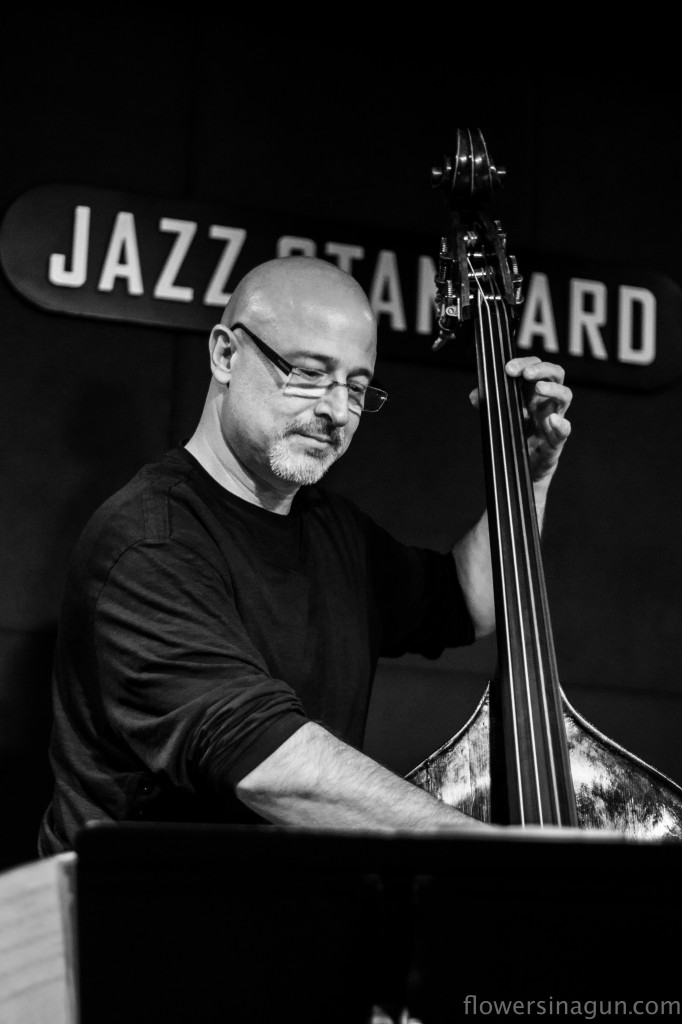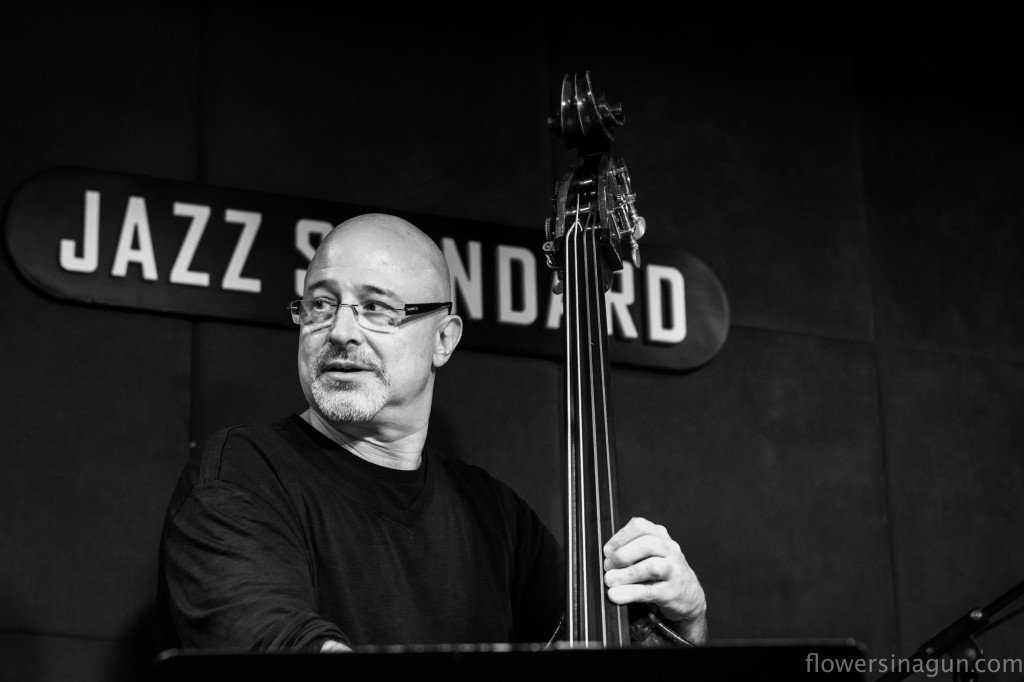Ben Wolfe is an accomplished bass player, composer and educator. He has enjoyed a successful career as a leader and played with a variety of famous jazz musicians including Wynton Marsalis, Joe Henderson, Jon Hendricks, Branford Marsalis and Eric Reed. The list goes on. Ben has also recorded extensively and he continues to write and play his own music.
On Tuesday night Ben brought his Quartet to Jazz Standard for an amazing night of music. The band is not just a band, it is a tight group of friends and includes stellar musicians: Orrin Evans on piano, Donald Edwards on drums and Stacy Dillard on tenor and soprano sax. 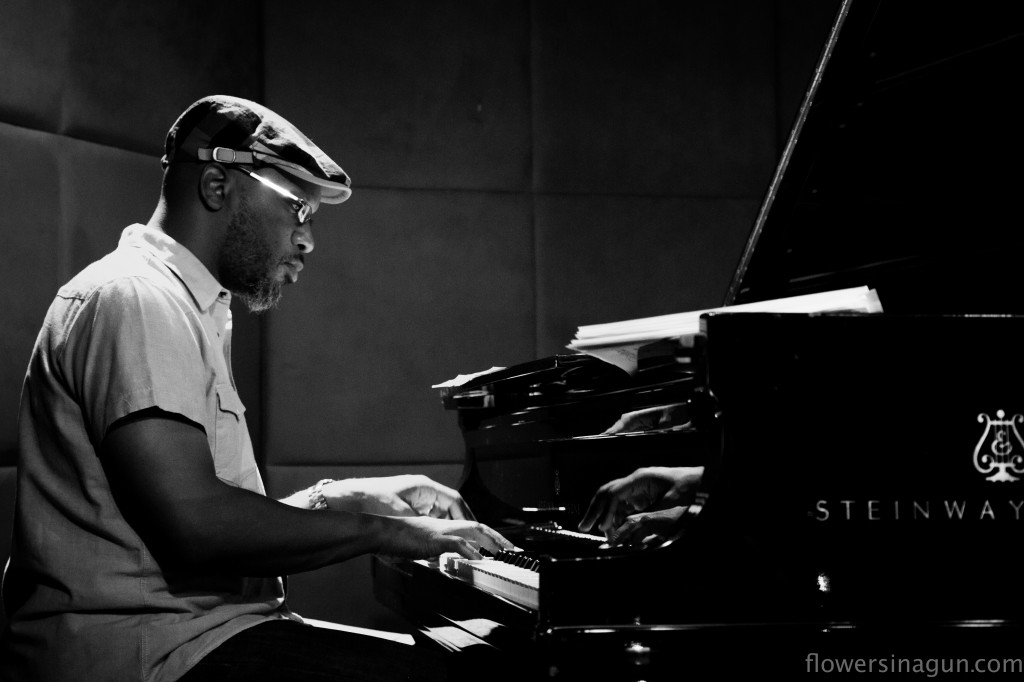
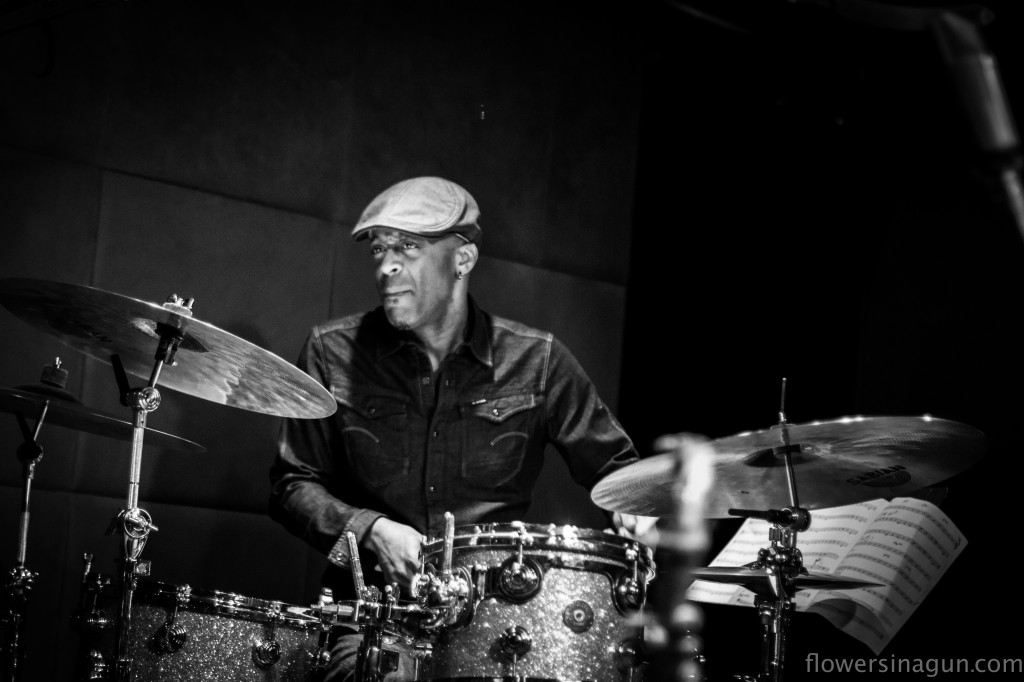
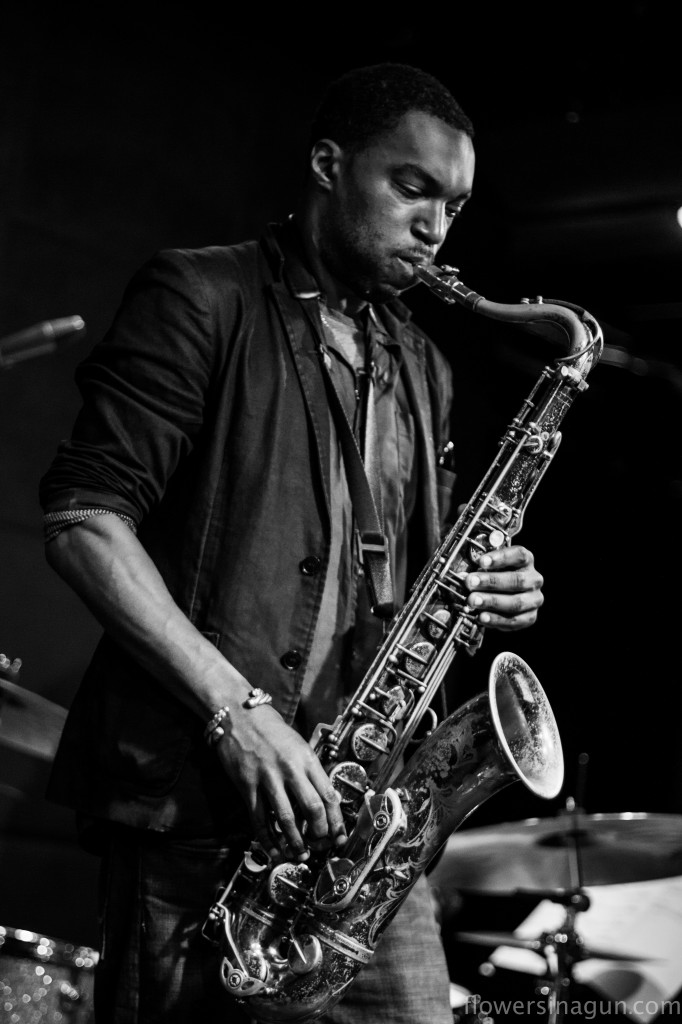 These guys have been playing together for a while and it comes through in the soulful music, flawless timing and undeniable connection between the musicians. They played a variety of old and new material, some of which they will be recording in a couple of weeks (it should be a record to look out for!). Undeniably the guys were swinging hard and each one got to shine and solo more than once throughout the set.
These guys have been playing together for a while and it comes through in the soulful music, flawless timing and undeniable connection between the musicians. They played a variety of old and new material, some of which they will be recording in a couple of weeks (it should be a record to look out for!). Undeniably the guys were swinging hard and each one got to shine and solo more than once throughout the set.
We talked to Ben Wolfe about his musical journey, current projects and the meaning of being a jazz musician among other things before the show started and he sure has lots of good stories to share.
Flowers In A Gun: Can we go back in time? How did you start playing music and specifically jazz?
Ben Wolfe: I always loved music; it’s always been a part of my life. My best friend in the 7th grade was a musician and I thought that I would play too. It was easy for me. I started off playing tuba and my best friend gave me lessons. He was a trombone player and at lunchtime we would always go to the practice room. He taught me how to play essentially.
FIG: And how did you end up playing the bass?
BW: When I got to high school the band director told me that I had to start playing electric bass and acoustic bass and tuba. I started playing a bunch of instruments when I was in high school actually. My father was a musician and my mother was a huge music fan, so I got a lot of support. And when I started playing electric bass it was a lot more fun than tuba, especially for a teenager. I had my own funk band and we would play high school dances. Acoustic bass I wasn’t that much into at first, I played it because I had to, and it’s not that I disliked it, it just wasn’t my thing at the time. And then I started playing jazz on electric bass. Well, we had two bands and worked gigs around Portland, Oregon. So one group was jazz quartet and the other one was a funk band. So I was working gigs pretty early on. I didn’t really start playing acoustic bass until I was out of high school. I always liked jazz and then when I decided that that’s what I really want to do, I switched to acoustic bass. And then it just felt like I found my home. I started practicing a lot immediately and I was trying to learn as much as I could. I learnt a lot from older musicians, especially the ones that were mean to me! I thank them to this day for it.
FIG: Now, let’s fast-forward. You’ve been on NY jazz scene for over two decades and you have successful career playing, recording and teaching. From your perspective, what has changed since you first got to NYC?
BW: The scene changes just because the world changes but also your relationship to the scene. I am 52 years old and I’ve been playing for a long time, so my relationship to the scene has changed significantly, it’s not the same as when I was in my twenties. New York to a 23 year old who wants to play jazz, nothing else, just play jazz, there was nothing else on mind, is different than New York to me now. I have a son, I am older, I want to play my own music … And New York jazz scene is different than anywhere else, it’s a community of a certain caliber of musicians.
FIG: Do you have a favorite place to play in New York?
BW: I play at Dizzy’s with my group every year, I love the place, it feels like home to me. I am a supporter of Jazz at Lincoln Center and what they are doing for music. I love Jazz Standard and I love playing at Smoke and Smalls … I just love playing places that offer good jazz. And of course I like playing at places that have good sound. And it really depends on who you are playing with, it’s all really about the music.
FIG: Can you talk a little bit about the group you are playing with tonight?
BW: So it’s Orrin Evans on piano, Donald Edwards on drums and Stacy Dillard on saxophone. We play together quite a bit. Orrin and Donald are on the last CD I made. We also made a trio record together; we do play together a lot. We are all very close, it’s like a family. That’s what I love about this band the most, the conversations that we have off the stage are the same as the conversations we have on the stage, the feeling I get is the same whether we are hanging out or playing music. And it is very rare, at least in my experience.
FIG: How long have you been playing together as a quarter?
BW: We all play together in different situations for quite some time. I’ve been using Orrin and Donald for several years now I’ve been using Stacy for two years now. That’s who I always call first. I also use JD Allen who was on the last CD and Nicholas Payton who plays with us every year at Dizzy’s as a special guests. And we also play in other bands together, for example the Captain Black Big Band.
FIG: And how do you see your role as a bandleader?
BW: We are playing my music. I am the composer. So, that’s the main thing. We are recording a record in a couple of weeks, so this gig is also a preparation for that CD.
FIG: Great! And what advice, if any, would you give to a young aspiring jazz musician?
BW: If you want to be a jazz musician, do it through the music. There are a lot of people who act like “jazz musicians” – talk, walk, dress, etc in a certain way – but that’s not jazz music. It’s the image of the jazz musician – very cool, wears sunglasses all the time … And it’s cool, but it is not the music. The music is the sound of it. Learn to play. Practice. Put in the time. And as you study, you need to learn that the key is not what you are playing, but what the other person is playing. It’s never about you, that’s the most common mistake. When you play it’s all about what the other person is playing. I practice the bass so I don’t have to think about it, I train my instincts so I can react to the situations around it.
FIG: Lovely. Thank you!
Anna Yatskevich is Flowers In A Gun’s glamorous jazz & beyond critic! Catch more reviews from her here and follow her on Twitter @jazzaddikt

